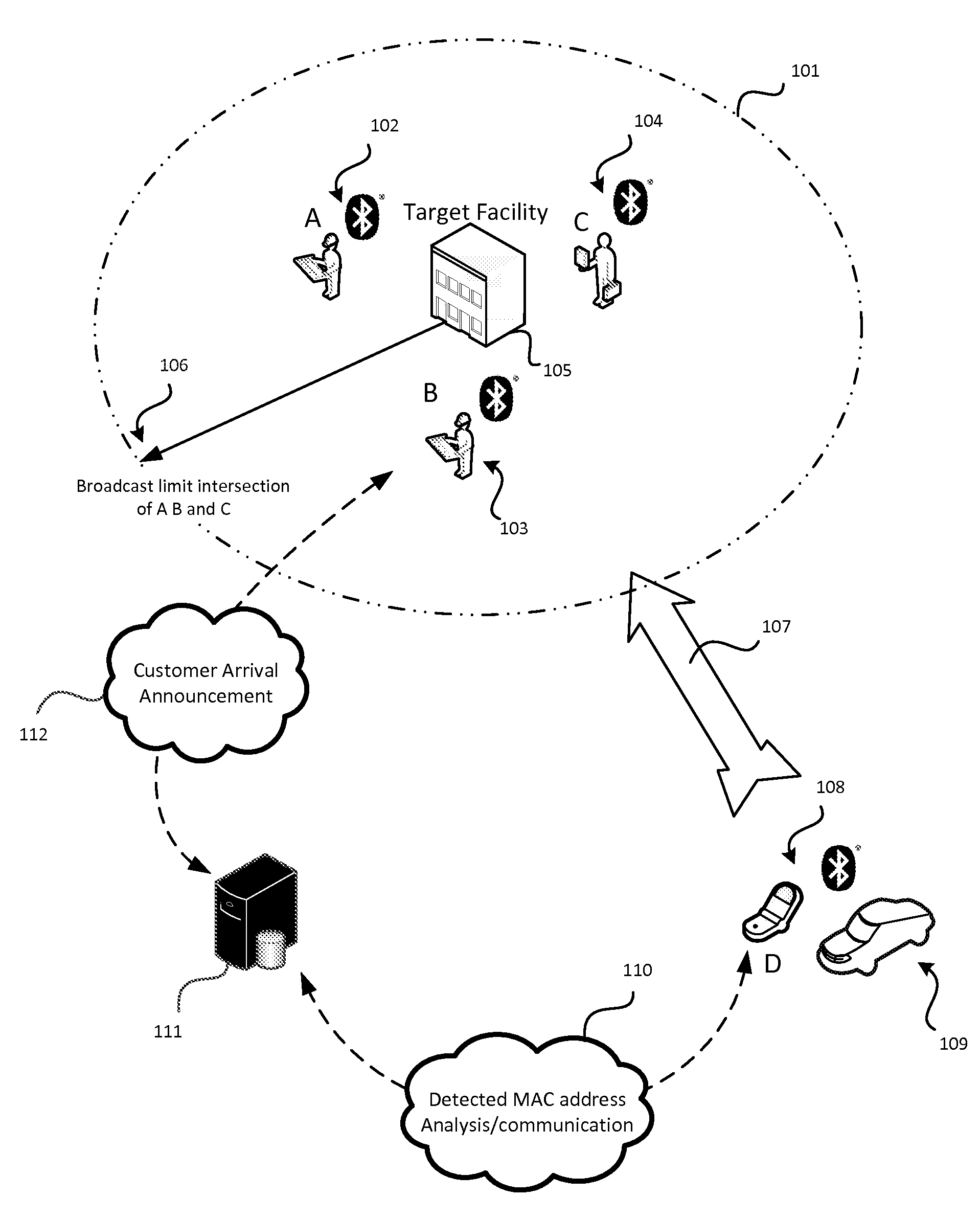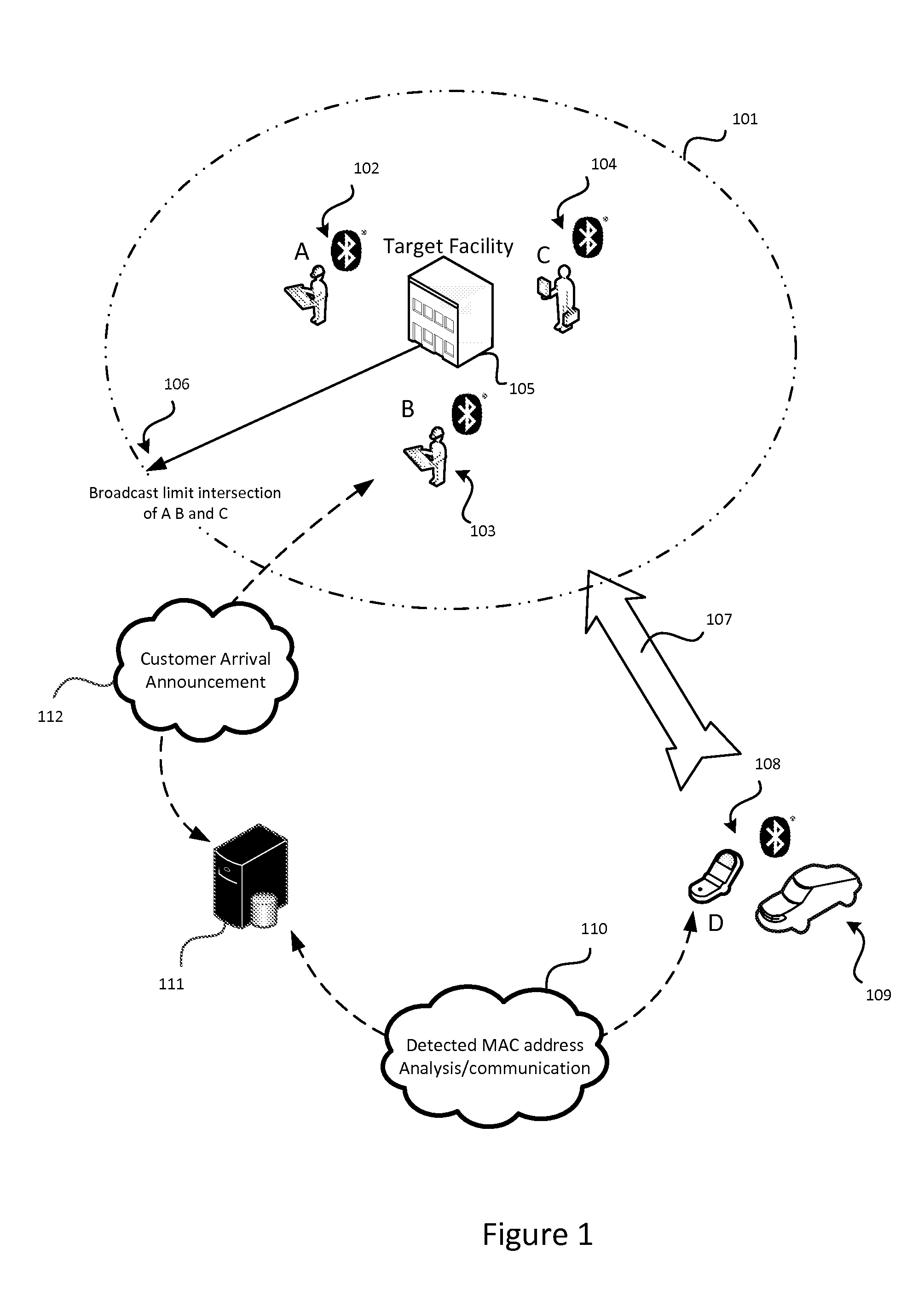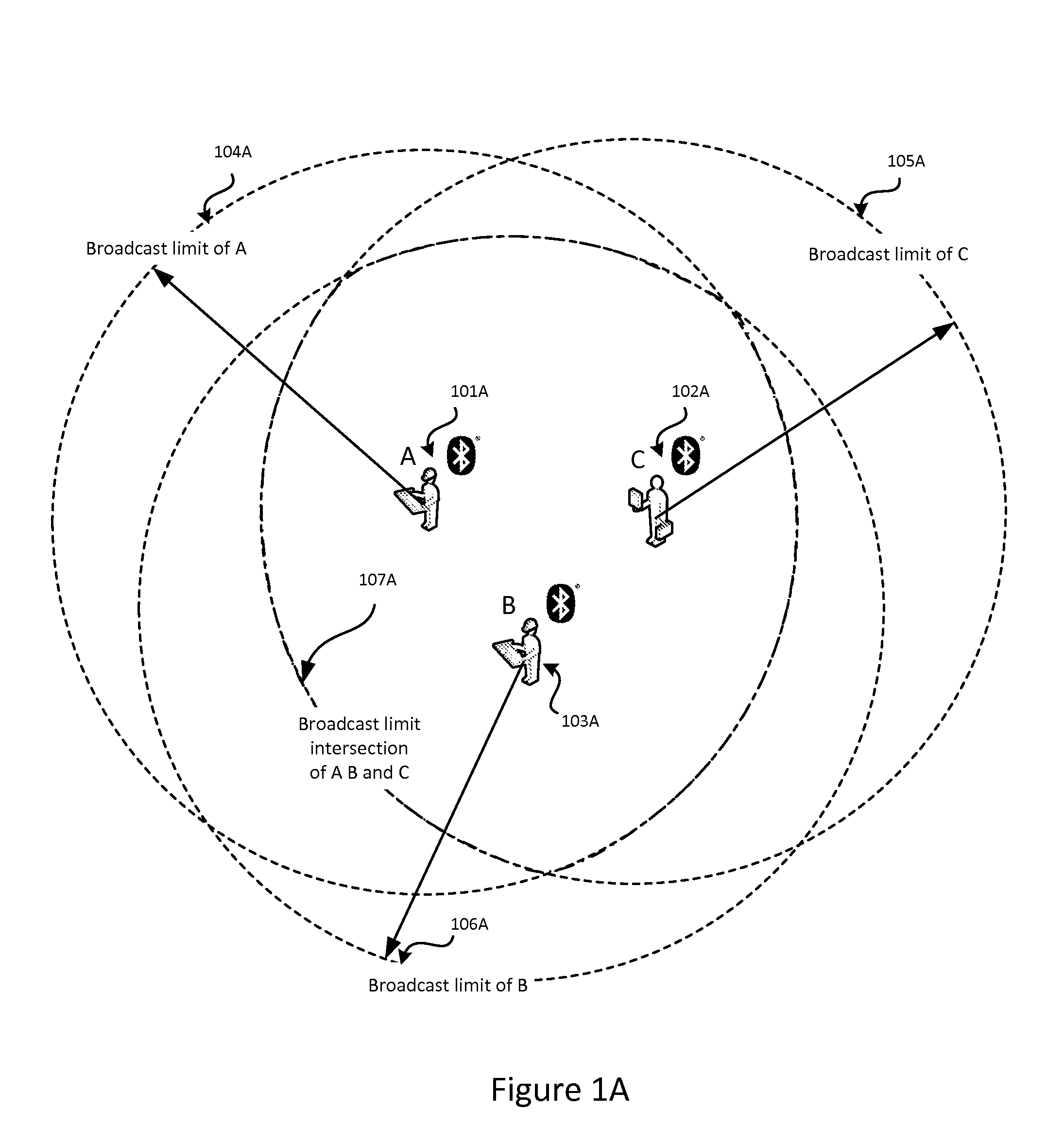System and method for proximity detection
a proximity detection and system technology, applied in the field of navigation, can solve the problems of affecting and the single method of navigation is not optimal for every user, so as to improve the accuracy of confidence computation
- Summary
- Abstract
- Description
- Claims
- Application Information
AI Technical Summary
Benefits of technology
Problems solved by technology
Method used
Image
Examples
Embodiment Construction
[0029]In the preferred embodiment of the present invention, a vehicle service facility desires to improve efficiency and customer service by notifying service assistants at the facility when customers have arrived at the facility. Customers may or may not have service appointments in advance of their arrival. Customers or users of the service facility have an application available on their mobile phone to optionally send a manual notification of arrival: “I am here”.
[0030]Service advisers, service assistants, and supervisors at the vehicle service facility each carry mobile devices registered with the decision system. Such mobile devices may be smartphones, tablets, or both. Such devices may have an application available and installed on them as a client application which receives the arrival event notification from decision system of the present invention.
[0031]FIG. 1 depicts an example configuration of the preferred embodiment context of the invention. In FIG. 1, the customer (mob...
PUM
 Login to View More
Login to View More Abstract
Description
Claims
Application Information
 Login to View More
Login to View More - R&D
- Intellectual Property
- Life Sciences
- Materials
- Tech Scout
- Unparalleled Data Quality
- Higher Quality Content
- 60% Fewer Hallucinations
Browse by: Latest US Patents, China's latest patents, Technical Efficacy Thesaurus, Application Domain, Technology Topic, Popular Technical Reports.
© 2025 PatSnap. All rights reserved.Legal|Privacy policy|Modern Slavery Act Transparency Statement|Sitemap|About US| Contact US: help@patsnap.com



